Good news for those with self-assessment tax bills
HMRC has extended the ‘season to be jolly’, well, just a little. Announced today that it has extended the filling period, usually January 31st, and when late payment penalties will become due. Good news, but there's still a catch - interest will still be charged.
HMRC will not charge late ‘filing’ penalties if filings are made by February 28th 2022. The penalty is 5% and is charged on any unpaid tax due. Similarly, it won’t apply late ‘payment' penalties, provided payment for tax due is made by April 1st 2022, or a payment plan has been set up by that date.
 This is consistent with the same waivers HMRC made last year and provides customers and tax representatives with some much needed breathing space, given the difficulties of the past year.
This is consistent with the same waivers HMRC made last year and provides customers and tax representatives with some much needed breathing space, given the difficulties of the past year.
Payment plans are still available
Payment plans, known as ‘Time to pay’ options, are still available and allow self assessment bills up to £30,000 to be spread over 12 months.
However, it should be noted and this is the catch: The actual filing and payment deadlines have not changed. Even though you can choose to file and pay later, interest will still be applied based on the existing deadlines. This means that late payment ‘interest’ still applies during this period, i.e. from Jan 31st onwards. The current late payment interest rate is 2.75%.
HMRC have said:
- A return received online in February will be treated as a return received late where there is a valid reasonable excuse for the lateness. This means that:
- There will be an extended enquiry window
- For returns filed after 28 February the other late filing penalties (daily penalties from 3 months, 6 and 12 month penalties) will operate as usual
- A 5% late payment penalty will be charged if tax remains outstanding, and a payment plan has not been set up, by midnight on 1 April 2022. Further late payment penalties will be charged at the usual 6 and 12 month points (August 2022 and February 2023 respectively) on tax outstanding where a payment plan has not been set up.
- We will not charge late filing penalties for SA700s and SA970s received in February – these returns can only be filed on paper
- For SA800s and SA900s we will not charge a late filing penalty if customers file online by the end of February – the deadline for filing SA800s and SA900s on paper was 31 October. Customers who file late on paper will be charged a late filing penalty in the normal way, they can appeal against this penalty if they have a reasonable excuse for filing their paper return late
- Self-employed customers who need to claim certain contributory benefits soon after 31 January 2022, need to ensure their annual Class 2 National Insurance contributions (NICs) are paid on time – this is to make sure their claims are unaffected. Class 2 NICs are included in the 2020 to 2021 balancing payment that is due to be paid by 31 January 2022. Benefit entitlements may be affected if they:
- Couldn’t pay their balancing payment by 31 January 2022, and:
- Have entered into a Time to Pay arrangement to pay off the balancing payment and other self assessment tax liabilities through instalments.
Still have questions?
We understand that HMRC statements and guidelines are not the easiest things to interpret, so if you still have questions and want us to assist you with your SA100 Tax return, call us today on 020 8108 0090 and talk with one of our specialists in either our London Richmond-Upon-Thames office or our London Putney Office.
UK tax on Irish rental income
An Irish citizen working in London is asked by HMRC to declare her rental income from Ireland
The Republic of Ireland is a short hop away from London and has a long-standing Common Travel Area (CTA) arrangement with the UK. Under the CTA, Irish citizens can live and work in the UK without a visa, residence permit or employment permit. This ease of movement may explain why many Irish citizens are working in London and contributing to the UK’s economy.
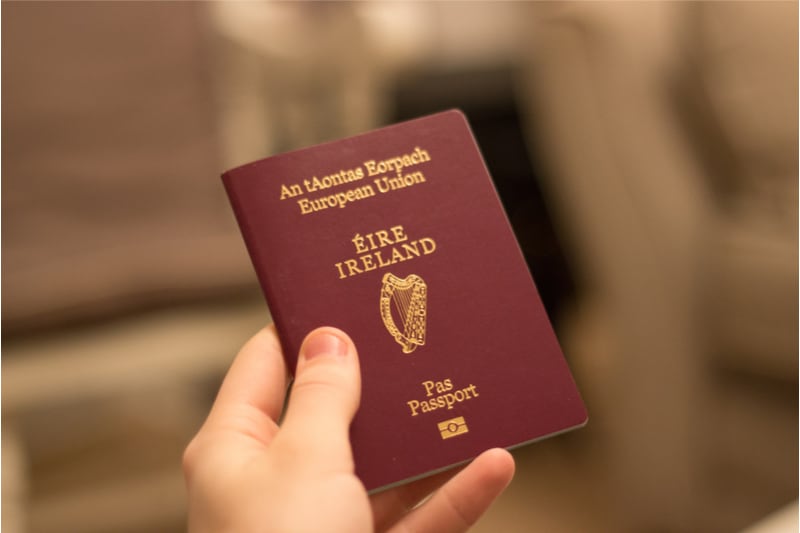 While some Irish citizens may end up putting their roots down in the UK, others still prefer to retire in the Emerald Isle someday in the future. And considering the property market in Ireland is booming, it is not uncommon to see savvy investors getting a buy-to-let in Ireland now with the aim that they may move into the property later.
While some Irish citizens may end up putting their roots down in the UK, others still prefer to retire in the Emerald Isle someday in the future. And considering the property market in Ireland is booming, it is not uncommon to see savvy investors getting a buy-to-let in Ireland now with the aim that they may move into the property later.
Mary, our client, was doing just that. She purchased a lovely family home in a tree-lined residential street in Dublin a few years ago and now rents it out while she works in London. In the UK, she is on PAYE and in Ireland, she files the relevant Irish tax return each year. To Mary, her financial affairs are rather straight forward and there is no need to do additional reporting. Unfortunately, HMRC sees it very differently.
Declaring a rental in Ireland to HMRC
It is important to point out that every case is different and that you should always seek professional advice from a personal tax accountant first. In the case of Mary, the rental profits that she gets from renting out her Dublin property is subject to the Irish tax. However, Mary is also a tax resident in the UK and therefore, HMRC believes she should have declared her rental income from Ireland.
Declaring your overseas income may not result in you paying tax twice, but not declaring it may see you fined and penalised. Whether or not one has to pay tax twice on the same income source depends on the existence of a double-taxation agreement between the country of your foreign income and the country where you are a tax resident. In this case, Ireland has a double-taxation agreement with the UK and one should not be paying tax twice on the same income source.
Worldwide Disclosure Facility (WDF)
HMRC launched the Worldwide Disclosure Facility on 5 September 2016. The idea behind this is to encourage UK tax residents who have foreign sources of income to disclose them voluntarily. Considering that over 100 countries now share and exchange information under the Organisation for Economic Co-operation and Development’s Common Reporting Standard (CRS), the WDF should help to increase international tax transparency.
If you have foreign interests, chances are you need to make a disclosure through the WDF, and preferably you do it before HMRC sends you a letter. Not declaring may put you in an unfavourable position, as HMRC may think that you’re negligent or worse, you choose to conceal your foreign income deliberately.
If you aren’t sure if a disclosure is required, talk to our qualified personal tax accountants. You can choose to work with us and we can review your specific circumstance and make the best recommendations.
Examples of tax liabilities that you need to declare
- Income from letting residential property or land
- Capital Gains from assets that increased in value between the time you bought them and the time you sold or transferred them
- Income from running a business
- Income from freelance or commission-based work
- Income from accepting credit card or debit card payments
- Investment income
- Any other income that you should have paid tax on
Call Tax Agility on 020 8108 0090 about disclosing your foreign income on the Worldwide Disclosure Facility today.
Becoming your tax agent for Worldwide Disclosure
When Mary came to see our personal tax accountant, she was at a loss and naturally worried that she might be penalised financially. We worked with her to understand her circumstance and became her tax agent, representing her and helping her complete forms and calculate tax credits – in this particular case, since Mary has paid tax in Ireland, she was entitled to a credit which reduced her UK tax liabilities.
Upon seeing our work, Mary subsequently engaged us to handle her Self Assessment whereby we advised her how much tax to pay and when, if a tax credit is applicable, and prepare and submit her SA100 personal tax return to HMRC.
Personal tax accountants at Tax Agility
Tax issues can quickly become more complicated when you start to report foreign income to HMRC. Concerns such as one's domicile, the difference in tax year, or if double-taxation is applicable are valid and should be addressed professionally.
Thankfully, our personal tax experts are here to assist. Our top advice is don’t wait for HMRC to send you a letter. Instead, be proactive and let us understand if your tax affairs need to be disclosed through the Worldwide Disclosure Facility (or not).
Should a disclosure be needed, we can help to register you, prepare and submit your disclosure, work out how much tax, interest and penalties you may need to pay, and negotiate a payment arrangement if it is required. Working with you every step of the way, we can help ensure that you aren’t paying more than you should, and the disclosure matter will be completed quickly, efficiently and professionally.
Call us today on 020 8108 0090 and speak to a knowledgeable tax specialist in either our London Richmond-Upon-Thames office or our London Putney Office.
Case Study: When HMRC asks about your foreign income
The UK has Automatic Exchange of Information agreements with over 100 countries, so HMRC knows if you have declared your foreign income or not.
According to the UK Parliament, there were 6.2 million people (9% of the total population) living in the UK who had another nationality. Within our Central London, Putney and Richmond offices, we also have foreign-born colleagues who had previously worked in another country. With international migration now a common trend, it is not uncommon to see some people struggling with foreign tax issues, particularly when they thought they had reported in another country but received a letter from HMRC pertaining to the overseas income.
 One of our clients, Victor from Richmond-Upon-Thames, had previously lived and worked in Singapore for a decade, during which time he acquired some shares and a few assets. When Victor came to work in London, he didn’t pay much attention to his tax affairs as he is on PAYE. It also didn’t cross his mind that he had to report the small (and irregular) income he still receives and remains in his bank account there.
One of our clients, Victor from Richmond-Upon-Thames, had previously lived and worked in Singapore for a decade, during which time he acquired some shares and a few assets. When Victor came to work in London, he didn’t pay much attention to his tax affairs as he is on PAYE. It also didn’t cross his mind that he had to report the small (and irregular) income he still receives and remains in his bank account there.
But one day Victor received a letter from HMRC about his foreign earnings which he had not reported in the UK. Panicked, Victor came to our Richmond-Upon-Thames office and asked for our help. Our personal tax accountants analysed Victor’s position and advised on the correct remedy to rectify his tax filing requirements. Seeing how swiftly we acted and provided him with a satisfactory result, Victor has now engaged us to report his future foreign income through Self Assessment tax return service.
Worldwide Disclosure Facility (WDF)
If you have foreign interests, chances are you need to make a disclosure through the WDF, and preferably you do it before HMRC sends you a letter. If you aren’t sure if a disclosure is required, talk to our qualified personal tax accountants. We can review your specific circumstance and make the best recommendations.
The WDF users
HMRC wants anyone needing to disclose a UK tax liability that relates wholly or partly to an offshore issue to use the WDF. An offshore issue includes unpaid or omitted tax relating to:
- Income arising from a source in a territory outside the UK
- Assets situated or held in a territory outside the UK
- Activities carried on wholly or mainly in a territory outside the UK
- Anything having effect as if it were income, assets or activities of a kind described above
The WDF should also be used when you have funds connected to unpaid or omitted UK tax that you have transferred to a territory outside the UK or are owned in a territory outside the UK.
Examples of tax liabilities that you need to declare
- Income from letting residential property or land
- Capital Gains from assets that increased in value between the time you bought them and the time you sold or transferred them
- Income from running a business
- Income from freelance or commission-based work
- Income from accepting credit card or debit card payments
- Investment income
- Any other incomes that you should have paid tax on
Call Tax Agility on 020 8108 0090 about disclosing your foreign income on the Worldwide Disclosure Facility today.
The WDF process
To use the WDF process, you must first register and HMRC will issue you a unique disclosure reference number.
After the registration process, you have 90 days to:
- Gather the information you need to fill in your disclosure
- Calculate the final liabilities including tax, duty, interest and penalties
- Compete the online form
As the WDF process may not be straightforward, we do encourage those who have foreign assets to come to us for professional advice first or allow us to file on behalf of you.
Don’t underestimate the implications
HMRC wants to send a strong deterrent message to those who don’t disclose their foreign assets. Accordingly, if you fail to make an accurate disclosure or refuse to provide supporting documents allowing HMRC to check the accuracy, you may receive a higher penalty and have your details published on the gov.uk website. Also, HMRC may choose to launch a civil or criminal investigation against you. To save yourself from the headache and unwanted attention, it is best to speak to our qualified personal tax accounts first.
Personal tax accountants at Tax Agility
Tax issues are never straightforward and things can get complicated quickly if you have foreign assets which you may not know that you need to declare and pay tax on.
Fortunately, our personal tax accountants are here to assist. We will first seek to understand your tax affairs and identify what needs to be disclosed through the Worldwide Disclosure Facility (or not).
Should a disclosure is needed, we can help to register you, prepare and submit your disclosure, work out how much tax, interest and penalties you may need to pay, and negotiate a payment arrangement if it is needed. Working with you every step of the way, we can help to make sure that you aren’t paying more than you should, and the disclosure matter will be completed quickly, efficiently and professionally.
Call us today on 020 8108 0090 and speak to a knowledgeable tax specialist in either our London Richmond-Upon-Thames office or our London Putney Office.
Starting a part-time business
Not ready to take the leap, consider a business on the side while keeping your main employment.

Having a full-time job is, for many people, the path to job security and financial security. While employment is a more comfortable choice when compared to setting up, owning and running one’s own business, the pace of technology growth and a less than stable economy in recent times have threatened this supposed ‘safe-haven’.
Many working adults have come to realise that relying on full-time employment as their only source of income is potentially risky, as jobs can be outsourced or replaced, plus changes in business fortunes can leave them facing the stark reality of unemployment. Accordingly, more and more working people are considering starting a business on the side and seeking additional income streams. If you’re facing a similar situation, this post may make a great read.
Benefits of starting a business on the side
Starting your own business on the side while working full-time can seem quite a hill to climb, but the benefits often far outlay the early pains soon. For instance, after getting a business going and experiencing your first success, a side-line business could soon:
- Provide a second income that supports the payment of your rent or mortgage, or ideally, help to pay down the mortgage more quickly than your main job could do on its own.
- Lessens the impact of losing your job. In many cases, people who have started their own businesses on the side often quit their jobs to focus on the business full time later. This comes once they are confident that the business has overcome any initial teething problems and can continue to support their dreams.
- The second income, or additional disposable income, could also help to afford a few extra luxuries in life.
- Running your own business often brings you into contact with people in a similar situation. These interactions will broaden your circle of acquaintances, leading perhaps to greater opportunities.
While there are many benefits, it pays to be clear about what you want to achieve before setting up a part-time business though. Do you want it to be just a part-time or seasonal thing, or do you see it as a potential replacement for your main job? Setting realistic expectations is critical, and can help you to be better prepared too.
Things to prepare before starting your part-time business
While there are few businesses that just followed an idea and been successful right out of the gate, in reality most entrepreneurs spend a fair amount of time on planning and preparation. The main reason is that even the best and most innovative ideas may not turn into great business concepts, unless there is a nurturing environment to help them flourish.
Write a business plan
The first advice most seasoned business people give to budding entrepreneurs is to write a business plan. While there are no rules on what you should include in your business plan, standard items like stating your goals, highlighting market research, operation plan and financial strategy will help you see your business more thoroughly.
 Conduct research
Conduct research
At the very least, you should know:
- The needs and preferences of your target market
- How are you going to find your customers?
- Your competitors
- Their price points versus your pricing strategy
- Do they have any gaps in their product or service you can exploit?
- What makes you different from them?
Know your responsibilities
If this is your first attempt at starting a business, you may not be familiar with all the responsibilities and duties of running a business. For example, if you are selling toys, your products need to comply with the provisions of the Toys Regulations 2011, meaning they must bear the CE mark, satisfy the ‘essential safety requirements’ in the regulations, be properly marked to ensure traceability, and be accompanied by instructions for use, along with warnings where necessary.
Crunch some numbers
The first number-crunching exercise you do should be about cost, revenue and profitability – because everyone wants to run a profitable business. Be sensible in how you plan your costs – especially marketing costs, as they are essential to get your products or services to the right people. Equally, be realistic about how much you can make over a period of time. Create a pricing strategy and calculate your break-even point. Find out about the risks you are exposed to and ways to mitigate them.
The second part of finance relates to funding. In essence, your plan to get the funds needed to launch and support the business until it turns a profit. There are a few types of funding – self-funding, funding through debt (borrowing money to start your business), equity (trading away ownership of your company to receive funding), and mezzanine (a combination of debt and equity). Most part-time businesses are either self-funded or through borrowing from friends and family members. Both approaches are helpful, albeit risky, so it is wise to have a back-up plan and know when to source for additional funding later. If you’d like to know more, follow the link to the article The complete guide to business funding.
Choose a company structure
Choosing to start your business as a sole proprietorship or as a limited company can impact how much tax you pay, how far you want to protect your personal liability, how much you want to pay to maintain the company, and how much administrative work you want to do it yourself. At Tax Agility, we help entrepreneurs to set-up a structure that works for them. If you’d like to talk to us about setting up a company, call us on 020 8108 0090 today.
Beware of pitfalls
Working fulltime can be exhausting, and by the end of a long work week, you probably do not have the time and energy to work on your part-time business. Add to that family obligations, and you may quickly find yourself defeated. One way to overcome this is to outsource the work you aren’t good at, if you have the initial investment funds ready. For instance, if you need a website, hire a good web company. If you need advice on company structure, talk to a qualified accountant like us.
Also, beware that those around you may not be as enthusiastic as you are. It goes without saying that to start and run your own business, you need to believe firmly in yourself and know what you want to achieve. Having a clear set of goals and milestones is critical. And, don’t forget to reward yourself a little along the way too.
Once your business takes off, you will soon find yourself spending more time with your clients. The challenge of juggling your time with the new venture may start affecting your day job, leading to undesirable consequences like making mistakes on your job and losing your job before you’re ready to quit.
Popular part-time businesses
Here are a few ideas to help you get started.
- Selling products on an e-Commerce platform
- Creating creative products – videos, pictures, jewellery etc
- Providing handyman services
- Becoming virtual assistants
- Becoming a freelance designer
- Writing for websites
Tax Agility is here to help small business owners
As leading small business accountants in London, Putney and Richmond, we have gladly worked with many entrepreneurs who started small and grew organically over the years. In the process, we become their trusted go-to accountants as well as business advisors.
Our services include:
- Accounting & Bookkeeping: leave your day-to-day finances to us. We will also provide monthly management accounts, prepare statements and help you set-up cloud accounting.
- Tax: if you are tax-efficient, you will have more money to invest, expand and create jobs in your community. Let us help you with tax planning, tax computation and tax returns.
- VAT: from VAT returns to manging VAT on import and export goods, we take care of them so you don’t have to.
- Payroll: as your team grows, outsource your payroll administration to us so that you and your team can continue to enjoy accurate and on-time payslips every month.
- Management consultancy: take your business forward with practical advice based on financial data and benchmark analysis.
The beauty of working with us is that you have the freedom to choose the level of engagement you want from us – for instance, you may need us to manage bookkeeping for now, give you tax advice when you need money to invest, add payroll when your team expands, and use our management consultancy service when you are ready to grow. All of our services are competitively priced with no hidden charges, and our small business accountants are always here to assist.
Call us today on 020 8108 0090. Alternatively, you can use the contact us form to get in touch.
You may also like:
- 10 things to avoid when starting a business
- Sole Trader or Limited Company: Choosing one that best suits your business needs
This blog is a general summary. It should not replace professional advice tailored to your specific circumstance.
Trusts and Income Tax
 We explain six main types of trusts preferred by UK residents and the different Income Tax rates of these trusts.
We explain six main types of trusts preferred by UK residents and the different Income Tax rates of these trusts.
In the UK, there are six main types of trusts, namely:
- Bare trusts
- Interest in possession trusts
- Discretionary trusts
- Accumulation trusts
- Settlor-interested trusts
- Mixed trusts
For non-residents who want to protect their assets here or want to make sure that their dependents living in the UK are taken care of, the type of trust applicable would be a non-resident trust.
Before we go into each trust type and their tax obligations, let’s get familiar with these terms:
- A settlor is a person who puts assets into a trust
- A trustee is a person who manages the trust
- A beneficiary is a person who benefits from the trust
1. Bare trusts
Bare trusts refer to a simple structure where the trustee holds the assets and incomes of the trust on behalf of the beneficiary. The beneficiary of a bare trust is responsible for paying tax on income from the trust.
Here is an example: you want to provide for a young child, so you set-up a bare trust and create an investment account or a saving account. All funds in the account belong to the child. Once the child reaches 18, they have the absolute right to the money.
Whether your child is 8 or 18, they enjoy the same standard Personal Allowance as everyone else, which is £12,500 a year currently. Anything beyond this threshold is subject to Income Tax.
Here is a snapshot of the income tax bands:
- No tax to pay if the taxable income is below £12,500
- 20% basic rate for taxable income between £12,501 to £50,000
- 40% higher rate for taxable income between £50,001 to £150,000
- 45% additional rate for taxable income over £150,000
2. Interest in possession trusts
An interest in possession trust means the trustee must pass on all trust income to the beneficiary as it arises (less any expenses). Who pays the Income Tax depends on the arrangements. If the trustee ‘mandates’ the income to the beneficiary (meaning it goes to the beneficiary directly instead of being passed through the trustee), then the beneficiary will need to include the income on their Self Assessment tax return and pay tax accordingly.
If the income is passed to the trustee first, then the trustee will be responsible for paying the Income Tax.
The tax rate depends on the type of income:
- Dividend-type of income is taxed at 7.5%
- All other incomes are taxed at 20%
If the beneficiary is a disabled person, special tax rules may apply. It is best to speak to our personal tax accountants if you find yourself in a situation which you aren’t sure.
3. Discretionary trusts
Discretionary trusts are often used when you want to safeguard your assets for the future generations, including descendants who have yet born. Depending on the trust deed, usually trustees of a discretionary trust can decide:
- What gets paid out (income or capital)
- Which beneficiary to receive the payments
- How often payments are made
- Any conditions to impose on the beneficiaries
Trustees are also responsible for paying tax on income received by the discretionary trust and the tax rates are as follows:
- Dividend-type of income is taxed at 7.5% (below £1,000) and 38.1% (above 1,000)
- All other incomes are taxed at 20% (below £1,000) and 45% (above £1,000)
There are two accompanying notes here. The first is that if the settlor has more than one trust, the £1,000 threshold is divided by the number of trusts they have. But if the settlor has set up five or more trusts, each trust is allowed to have the standard rate band of £200.
In addition, trustees do not qualify for the dividend allowance (which is set at £2,000 a year currently). This means trustees must pay tax on all dividends depending on the tax band they fall within.
4. Accumulation trusts
In an accumulation trust, trustees can accumulate income within the trust and add it to the trust’s capital. They may also be able to pay the income out. For example, the beneficiary may be an infant, so the trustees will accumulate the trust’s income until the beneficiary is legally entitled to receive the capital and all incomes.
Accumulation trusts are subject to the same taxation as discretionary trusts discussed above.
5. Settlor-interested trusts
As the name suggests, a settlor-interested trust benefits the settlor or the spouse or civil partner. The trust could be an interest in possession trust, a discretionary trust, or an accumulation trust. Settlor-interested trusts are becoming popular, given that ageing is affecting health care and social costs. What most people do is that they set up a discretionary trust and put their assets in the trust – doing so will make sure that they have money in the future when they can no longer work.
When it comes to taxes, the settlor is responsible for Income Tax on these trusts, even if some of the income is not paid out to them. But because the trustee is the person managing the trust, they have to pay the Income Tax on behalf of the settlor first.
Here’s how it works:
- The trustee pays Income Tax on the trust income by filling out a Trust and Estate Tax Return.
- They give the settlor a statement of all the income and the rates of tax charged on it.
- The settlor tells HMRC about the tax the trustees have paid on their behalf on a Self Assessment tax return.
- How much tax to pay depends upon what type of trust the settlor-interested trust is.
Give our Personal Tax accountants a call on 020 8108 0090 when you want to make sure your Trust and Estate Tax Return is correct.
6. Mixed trusts
When you combine more than one type of trust, you are setting up what is called a mixed trust. In this situation, the different parts of the trust are treated according to the tax rules that apply to each part.
Non-resident trusts
If you a settlor and you don’t reside in the UK and are not domiciled in the UK, and you have a mixture of resident and non-resident trustees, or you have trustees who all live outside the UK, then you may have set-up a non-resident trust to protect your assets in the UK. The tax rules of non-resident trusts depend on many factors and can get complicated quickly. It is best to speak to one of our personal tax accountants and discuss your situations, so we could advise how to handle capital gains arise from a non-resident trust.
Experienced Trust and Income Tax accountants
When you set-up a trust, you generally have a few objectives which could be:
- You want to look after someone who can’t manage their money
- You want to safeguard your assets for your children and grandchildren
- You want to have enough money to pay for health care and social costs when you can no longer work
- You want to lower the Inheritance Tax your estate is liable for
Accordingly, you will need to choose a trust that can best address your needs and think about how the different tax rules may affect you. This is where our personal tax accountants can help. We will listen to your situations and explain the characteristics of each trust in detail, including:
- Advising on the tax advantages and helping you to select the most suitable type of trust
- Transferring assets into a trust
- Advising on wills to ensure tax efficiency
- Maximising inheritance tax reliefs and exemptions
- Planning lifetime gifts and making full use of exemptions and lower tax rates available
- Advising on adequate life assurance to mitigate any inheritance tax impacts
Call us today on 020 8108 0090 to discuss your situations and how a trust and its tax rules can best match your financial needs. The first meeting is free and no obligation.
Alternatively, you can also use the enquiry form to get in touch.
Important note
The Provision of Services Regulations 2009 requires us to advise you that our professional indemnity insurer is HCC International Insurance Company PLC, 35 Seething Lane, London, EC3N 4AH.
Our territorial coverage is worldwide except for any professional business carried out from an office in the United States of America or Canada and excludes any action for a claim brought in any court in the United States of America or Canada.
We are not authorised financial advisers but will introduce you to suitable firms or individuals when you are considering transactions that would benefit from authorised advice.
We are not regulated by the Financial Services Act and will refer you to an FSA-regulated provider if that will benefit you.
You may also like
- All you need to know about Self Assessment tax return
- Personal tax accountants for UK tax returns and tax-saving tips
Self Assessment and personal tax services for Putney residents
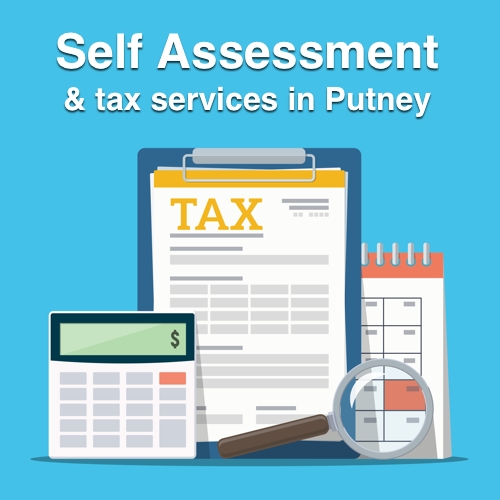
Putney residents can expect quick, accurate and cost-effective Self Assessment and other tax services from Tax Agility.
Each year, thousands of people miss the Self Assessment deadline, make careless mistakes when they rush to complete their tax returns, or pay more tax than necessary – you don’t have to be one of them if you work with Tax Agility, your local Personal Tax accountants in Putney.
We’re here to calculate your tax and apply the appropriate allowances, so you can spend more time focusing on your family and growing your personal wealth.
Tax Agility, your local Personal Tax accountants in Putney
Tax is a complex subject with regular changes, and one’s circumstances can also change with time, meaning tax regulations that once applied to you may not be applicable now. So working with a Personal Tax accountant like us is hugely beneficial. Each year, we carefully review your income versus tax obligation, as well as exploring legitimate tax-saving options to reduce your tax bill accordingly.
Our professional accounting services provide you with:
Self Assessment tax return
In the UK, self-employed individuals, partners in a business partnership, high earners (with income over £100k) and anyone whose income is not taxed under PAYE will need to file a Self Assessment tax return. In addition, trustees, landlords and people with Capital Gains may also need to complete a Self Assessment tax return. Turn to one of our ICAEW Chartered Accountants for help when it comes to Self Assessment. We can be your agent and file the tax return on your behalf, as well as sharing tax-saving tips and applying the appropriate allowances and reliefs so you don’t pay more tax than it is necessary.
Tax advice
Capital Gains, as well as income from rental, selling products online and doing freelancing work may mean you have more taxes to pay if you are unaware of legitimate options which may reduce your tax bill for the given year. Give your local Personal Tax accountant in Putney a call on 020 8108 0090 when you need independent and trusted tax advice.
Estate and Inheritance Tax planning
A good estate planning can effectively lower the Inheritance Tax your estate needs to pay, thereby safeguarding your hard-earned assets and allowing your loved ones to cherish your legacy.
Specialist services
From forming a sole proprietorship, selling a business to tax-saving investment options, you can count on us to give honest tax advice.
Why choose Tax Agility
- You receive a responsive and friendly service
- You get a personalised service tailored to your circumstances
- Competitive pricing with no hidden charges
- The convenience of a local Tax Agility office in Putney
- We take care of the tedious information gathering process
- We learn about the changing tax obligations so you don’t have to
- We are professional and welcome your query, be it big or small
- We aim to save you money
“I’ve been a client of Tax Agility for more than 10 years now. They always complete my Self Assessment and provide great tax-saving tips,” words from a happy customer.
Call Tax Agility on 020 8108 0090 for all your personal tax matters today.
Personalised tax advice
Everyone’s situation is unique and therefore, you should receive tax advice that is unique to you too. This is why our service focuses on you – you can decide the level of engagement you want and our fees are transparent with no hidden charges.
Being local to you in Putney means you can meet one of our personal tax professionals if you’d like. We’re here to help with questions pertaining to your tax and personal finances.
Visit our Putney personal tax return service page and you may also find these relevant pages useful:
- Personal tax accountants for UK tax returns and tax-saving tips
- All you need to know about Self Assessment tax return
Self Assessment and personal tax services for Wimbledon residents
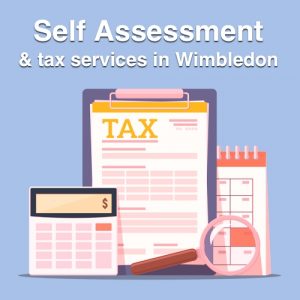
Wimbledon residents can expect quick, accurate and cost-effective Self Assessment and other tax services from Tax Agility.
With good transport links to London and neighbouring boroughs, Wimbledon is an ideal hub for commercial activities. Having a thriving business and strong revenue come naturally the issues of tax. Thankfully, you can turn to Tax Agility, your local Personal Tax accountants in Wimbledon for honest and expert tax advice.
Tax Agility, your local Personal Tax accountants in Wimbledon
Working with a trusted Personal Tax accountant like our team at Tax Agility means you can avoid many common tax mistakes. We also actively look out for the latest allowances and reliefs that you are entitled to claim, so you don’t pay more tax than it is necessary.
Our professional accounting services provide you with:
Self Assessment tax return
If your income is not taxed under PAYE, you may need to file a Self Assessment tax return. Self-employed individuals, partners in a business partnership and high earners (with income over £100k) fall into the category. Trustees, landlords and people with Capital Gains may also need to complete a Self Assessment tax return. Let our ICAEW Chartered Accountants help you with Self Assessment and file on your behalf. With us working by your side, you won’t pay more tax than it is necessary while remain compliant with tax regulations.
Tax planning and advice
Tax planning looks at your income versus tax obligations, as well as using legitimate options to reduce your overall tax bill. Give your local Personal Tax accountant in Wimbledon a call on 020 8108 0090 for honest, trusted tax advice.
Estate and Inheritance Tax planning
A good estate planning can reduce the Inheritance Tax payable by your estate. Talk to us about estate and Inheritance Tax planning today.
Specialist services
From forming a sole proprietorship, selling a business to tax-saving investment options, you can count on us to give honest tax advice.
Why choose Tax Agility
- You receive a responsive and friendly service
- You get a personalised service tailored to your circumstances
- Competitive pricing with no hidden charges
- The convenience of a local Tax Agility office in Wimbledon
- We take care of the tedious information gathering process
- We learn about the changing tax obligations so you don’t have to
- We are professional and welcome your query, be it big or small
- We aim to save you money
“Tax Agility gives me a reliable and cost-effective service for my freelance work” – words from a happy customer.
Call Tax Agility on 020 8108 0090 for all your personal tax matters today.
Personalised tax advice
Everyone’s situation is unique and therefore, you should receive tax advice that is unique to you too. This is why our service focuses on you – you can decide the level of engagement you want and our fees are transparent with no hidden charges.
Visit our Wimbledon Personal Tax Return service page and you may also find these relevant pages useful:
- Personal tax accountants for UK tax returns and tax-saving tips
- All you need to know about Self Assessment tax return
Self Assessment and personal tax services for Richmond residents
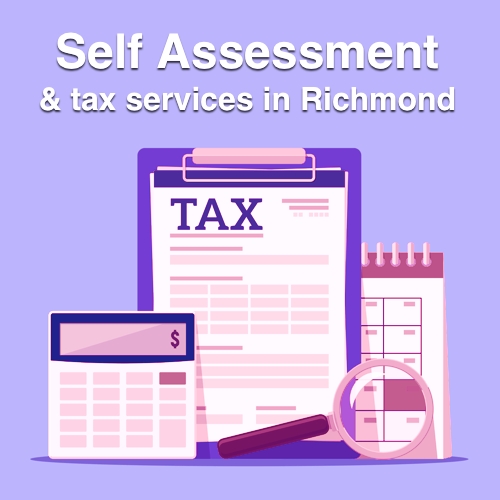
Richmond-upon-Thames residents can expect quick, accurate and cost-effective Self Assessment and other tax services from Tax Agility.
A hard-working borough, Richmond-upon-Thames enjoys a higher employment rate than many other parts of London, according to the ONS data. As you work hard for your money, we work hard to keep it in your pocket.
Our Personal Tax accountants in Richmond-upon-Thames have a strong reputation in helping local residents with their taxes, from Self Assessment tax return, estate planning and Inheritance Tax, to Capital Gains and other tax advice. We offer honest, expert tax services that focus on you – you control how you want to engage us and our fees are transparent without hidden charges.
Tax Agility, your local Personal Tax accountants in Richmond-upon-Thames
Tax regulations, along with your circumstances, change with time. This means allowances and reliefs that applied to you before may not apply now. At the same time, new tax-saving schemes may arise and benefit you. Knowing what you’re entitled to claim and using legitimate options to reduce your tax bills are the jobs of our ICAEW chartered Personal Tax accountants.
Our professional accounting services provide you with:
Self Assessment tax return
Self-employed individuals, partners in a business partnership, high earners (with income over £100k) and anyone whose income is not taxed under PAYE will need to file a Self Assessment tax return. In addition, trustees, landlords and people with Capital Gains may also need to complete a Self Assessment tax return. You can engage us as your agent and let us handle your tax return on your behalf. We will also share tax-saving tips and make use of the appropriate allowances and reliefs so you don’t pay more tax than it is necessary.
Tax advice
Not every income is taxed under PAYE. Income from rental, working on freelance projects, selling products online, buying and selling items of value – they may require you to pay tax separately. Talk to us, your local Personal Tax accountant, if you would like to know if there are legitimate tax-saving options.
Estate and Inheritance Tax planning
A good estate planning can effectively lower the Inheritance Tax payable by your estate, thereby safeguarding your hard-earned assets and allowing your heirs to cherish your legacy.
Specialist services
From forming a sole proprietorship, selling a business to tax-saving investment options, you can count on us to give honest, expert tax advice.
Why choose Tax Agility
At Tax Agility, we don’t believe in creative accounting that will get you in trouble with HMRC. Instead, we keep ourselves updated with the latest tax regulations and legitimate tax-saving options to benefit you and our clients.
Benefits of using our services include:
- You receive a responsive and friendly service
- You get a personalised service tailored to your circumstances
- Competitive pricing with no hidden charges
- The convenience of a local Tax Agility office in Richmond-upon-Thames
- We take care of the tedious information gathering process
- We learn about the changing tax obligations so you don’t have to
- We are professional and welcome your query, be it big or small
- We aim to save you money
“I can rely on Donovan and his team to get my Self Assessment tax return right and save me money,” – words from a happy customer.
Call Tax Agility on 020 8108 0090 for all your personal tax matters today.
Personalised tax advice
Everyone’s situation is unique and therefore, you should receive tax advice that is unique to you too. This is why our service focuses on you – your income, tax obligation, and reliefs and allowances that can reduce your tax bill legitimately.
You can decide how you want to engage us and our fees are transparent with no hidden charges.
Being local to you in Richmond-upon-Thames means you can meet with one of our personal tax professionals if you’d like.
Visit our Richmond-upon-Thames personal tax return service page and the following articles may make a good read:
- Personal tax accountants for UK tax returns and tax-saving tips
- All you need to know about Self Assessment tax return
Personal tax accountants for UK tax returns and tax-saving tips
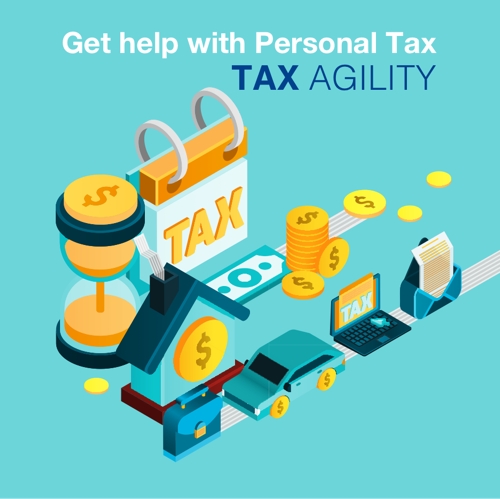
You work hard for your money, so we work hard to keep it in your pocket.
“I want to do the right thing and pay taxes but I don't want to pay more than necessary. Can I trust you to do my taxes and save me from a big headache?” These were the words from a customer who was looking to find a Tax Accountant who can give her honest and expert tax advice. She came to us through a friend’s recommendation and she is now one of my many happy customers.
Knowing what you’re entitled to claim and using legitimate options to reduce your tax bills are the jobs of our Personal Tax accountants who are trusted by thousands of individuals in London, Richmond, Putney and Wimbledon with their taxes.
We specialise in providing honest, expert tax services and have built a strong reputation of excellence over the past few decades. Our professional and friendly service, along with our attention to detail and our mission to keep one’s finances in order, has helped many individuals to spend less time worrying about taxes but more time focusing on growing their personal wealth.
Call our Personal Tax accountants on 020 8108 0090.
Common tax mistakes we can help you to avoid
Tax is a complex subject so it is natural for self-employed individuals, investors, landlords, trustees and many more to have questions. Here are five common tax mistakes which our Personal Tax accountants can help you to avoid.
1. Forgetting to declare all your income
Forgetting to declare all your income – from money generated through your business activities, interests earned on bank accounts, dividends from shares, to extra income from selling products online – is not a risk worth taking. It is a mistake to assume that HMRC can’t find out your extra income – they can, they have teams to investigate individuals perceived to evade taxes.
2. Forgetting to claim tax reliefs
We have a client who continued to pay into a private pension from her last employment through direct debit but did not tell HMRC – until we stepped in to help her claim tax reliefs worth over a thousand pounds. There are many allowances and reliefs, some applicable to you and some don’t, so get the right advice to keep more money in your pocket.
3. Forgetting deadlines
About 11.1 million taxpayers filed a Self Assessment tax return in 2020 but nearly one million people missed the deadline, according to a BBC news report. Anyone with a genuine excuse can avoid fines but in many instances, people simply forget and have to pay penalties. With us working by your side, you will never miss a tax deadline again.
4. Wrongly claiming expenses
Wrongly claiming expenses happen often. It could be a landlord claiming capital expenditure (which can’t be deductible from rental income) or a self-employed individual carelessly claiming tax relief on the duality of purpose expenses, among other scenarios.
5. Not transferring unused allowances
Transferring one’s unused allowances to a spouse sounds easy but many people are not aware of this or simply do not know how to go about doing it.
Apart from the above, there are plenty more specific mistakes, like if you transfer an asset following a divorce, you may have to pay Capital Gains Tax, or not using a trust to manage your assets and safeguard them for your children even if it makes sense to do so, among others. As your circumstances are different from others, it is best to give our Personal Tax accountants a call on 020 8108 0090 or use the contact form to get in touch.
Our Personal Tax services
Self Assessment
Self-employed individuals, partners in a business partnership, high earners with income over £100,000 and anyone whose income is not taxed under PAYE will need to file a Self Assessment tax return. Trustees, landlords and homeowners with Capital Gains may also need to complete a Self Assessment tax return.
Our Personal Tax accountants, based in Richmond, Putney and Wimbledon are here to help with Self Assessment tax returns in the local areas. We are happy to share tax-saving tips and be your tax agent, handling your filing and making sure that applicable allowances and reliefs are used to your benefit.
Capital Gains Tax
Many items of value are subject to Capital Gains Tax when you make a profit from selling them but there are allowances and reliefs available. Our Personal Tax accountants can help you reduce your Capital Gains Tax legitimately by exploring options such as transferring certain assets to your spouse before the sale and choosing the right timing for the sale.
Personal investments
What kind of taxes you pay on investments depend upon the type of investments. For example, you don’t pay Capital Gains Tax on money in your ISA and you get tax reliefs if you invest through Enterprise Investment Scheme (EIS) and Seed Enterprise Investment Scheme (SEIS). Get solid tax advice from our chartered accountants today.
Trust and Inheritance Tax
Death is not a popular subject to be discussed among families and accordingly, many don’t do estate planning. As a result, when death happens, the estate of the deceased has to pay a substantial amount of Inheritance Tax. Our Personal Tax accountants can advise if trust could be used to reduce your Inheritance Tax, as well as discussing other options.
Self-employed tax advice
With a proven track record working with self-employed contractors or freelancers across London, we can offer useful tax-saving tips that help you and your business. As the needs of each person are different, we offer a range of accountancy packages so you can decide how much you want to spend and the right level of engagement. For more information, check out our Contractor Accountants page.
Exit planning
If you’re planning on leaving your business (whether through a merger, acquisition or otherwise), our experienced chartered accountants can help guide you through a range of options, recommending strategic moves that would offer you the greatest financial reward.
Tax investigations
If you are under investigation by HMRC or wish to make voluntary disclosures, rely on our expert knowledge to guide you. We can also negotiate on behalf of you.
Personal Tax planning
Lowering your tax bills legitimately requires effective planning, one that considers your income, your tax liability and what you want to achieve for yourself and your family, and the relevant tax regulations. Talk to us and see how we can help.
Specialist services
Circumstances can change for everyone. Starting a business, getting married, moving overseas, buying and selling houses – each of these circumstances may have an impact on your tax liability. Thankfully, you can rely on our Personal Tax accountants to help when you start a new chapter in life.
The benefits of hiring our Personal Tax accountants
- You receive a responsive and friendly service
- You get a personalised service tailored to your circumstances
- You become tax-efficient and remain compliant with the tax rules
- We offer competitive pricing with no hidden charges
- We learn about the changing tax obligations so you don’t have to
- We are professional and welcome your query, be it big or small
- We aim to save you money
- We look for long-term relationships
- We are ICAEW chartered accountants
Call our Personal Tax accountants on 020 8108 0090.
Alternatively, use our contact form to get in touch.
Relevant pages:
- Personalised tax advice for individuals
- Personal Tax Self Assessment service
- Personal Tax Planning
- Trusts and Inheritance Tax planning
You can also contact our local Personal Tax accountants in Richmond, Putney and Wimbledon, as well as our small business accountants in London.
All you need to know about Self Assessment tax return

Self Assessment is one of the two ways which HMRC uses to collect Income Tax. Find out if Self Assessment applies to you, the important dates, penalties and common questions in this article.
In the UK, HMRC collects Income Tax through PAYE and Self Assessment. PAYE is where your income is taxed at source, meaning the money you receive has already been deducted off tax and National Insurance. Most employees in the UK are taxed under PAYE.
Self Assessment is for people whose income has not been taxed at source. Examples of such income include the money you receive as a sole trader, your rental income, income from a trust, casual freelance earnings, occasional income like selling products on online, to name but a few.
Also, if you were taxed at an incorrect rate or if you want to claim allowances or reliefs, then you may need to file a Self Assessment tax return.
Who needs to file a Self Assessment tax return
Individuals who need to file a Self Assessment tax return include:
- Self-employed individuals, aka sole traders
- A partner in a business partnership
- A company director whose income is not taxed under PAYE
- A trustee who is responsible for reporting and paying tax on behalf of the trust
- An executor or administrator of a deceased’s estate
In addition, you may also need to complete a Self Assessment tax return if:
- You have untaxed income from property rental, investments, other freelance assignments, etc.
- You receive regular income from a trust or settlement
- You receive a gift from a loved one at some point in the seven years before they passed away
- You have an annual income of £100,000 or more before tax
- You have foreign income
- If you get child benefit and your income (or your partner’s income) is over £50,000
- You have capital gains
The list above is not exclusive. There are also other scenarios where you need to file a Self Assessment tax return.
Call our Personal Tax Accountants on 020 8108 0090 for expert Self Assessment advice.
Important deadlines
We will highlight a few important dates below but beware that the dates may be applicable to you during this particular tax year or they may be applicable following the end of the tax year.
31 January
Before midnight on 31 January, one of the followings may be applicable to you:
- File your tax returns online for the previous tax year.
- Pay any tax you owe for the previous tax year.
- If you’re self-employed, pay your first payment on account. The phrase ‘payments on account’ refers to advance payments towards your tax bill.
- If you’re self-employed, pay your balancing payment if you still have tax to pay after you’ve made your payments on account.
- Amend your past tax return when you realise that you have made a mistake.
6 April
6 April marks the beginning of a new tax year in the UK. This is an important date as changes agreed in the Budget and new tax regulations may come into effect.
31 July
If you’re self-employed and you pay your taxes through payments on account, then you know that you need to make two payments a year. The first payment is before midnight on 31 January and the second payment is before midnight on 31 July.
Note: Due to the Coronavirus COVID-19 pandemic, the due date for the second payment on account for 2019/20 is now 31 January 2021 (instead of 31 July 2020).
5 October
If this is your first time submitting a Self Assessment, you must register by 5 October. Upon completing the registration, you will get a Unique Taxpayer Reference number and a code (in the post) which you need to activate your account.
31 October
31 October is the deadline for filing a paper tax return. Increasingly, HMRC wants you to file online but if you choose to continue with a paper tax return, then you will need to download one or request for a paper Self Assessment return.
30 December
If you have incomes taxed under PAYE and you also file your Self Assessment, you can pay your Self Assessment bill through your PAYE tax code if:
- You owe less than £3,000 on your tax bill
- You submitted your paper tax return by 31 October or your online tax return by 30 December
Please note that you can’t pay through your tax code if you don’t have enough PAYE income for HMRC to collect it.
Late filing and the penalties
Unless you have an excuse deemed reasonable by HMRC, filing late will cost you money. Here is an overview of the penalties:
- One day late: £100
- Up to three months late: £100, plus £10 a day (capped at 90 days), so up to a total of £1,000
- Up to six months late: £300 or 5% of the tax due (whichever is higher), plus the penalties above
- Up to 12 months late: Additional £300 or 5% of the tax due (whichever is higher), plus the penalties above
Every year, hundreds of thousands file the Self Assessment late and risk a fine. You can avoid this by getting in touch with our Personal Tax Accountants on 020 8108 0090 now. We can help you plan, prepare and file on behalf of you.
Late tax payment and the penalties
31 January is the deadline for paying any tax you owe for the previous tax year (assuming you have not requested to pay your Self Assessment tax bill through your PAYE tax code). If you miss this deadline, you may be charged interest plus a penalty of 5% of the tax outstanding. Visit this gov.uk page to calculate your estimated penalties if you file your Self Assessment late or pay your Self Assessment tax bill late.
Reasonable excuses
If you’ve missed the deadline for your return or payment, you can appeal against some penalties if you have a reasonable excuse.
According to this gov.uk page, examples of reasonable excuses are:
- Your partner or another close relative died shortly before the tax return or payment deadline
- You had an unexpected stay in hospital that prevented you from managing your tax affairs
- You had a serious or life-threatening illness
- Your computer or software failed just before or while you were preparing your online return
- Service issues with HMRC online services
- A fire, flood or theft prevented you from completing your tax return
- Postal delays that you could not have predicted
- Delays related to a disability you have
You must send your return or payment as soon as possible after your reasonable excuse is resolved.
Mistakes on your Self Assessment tax return
Mistakes can happen and after you’ve filed your Self Assessment tax return, you can make still make a change by signing in to your Government Gateway portal (if you’ve filed it online) or download a new tax return and send HMRC and the corrected pages (if you’ve filed a paper return).
Beware that if HMRC doesn’t think that the mistakes are genuine, you could face a fine. How much fine you will need to pay depends on how HMRC sees the mistake; whether you have made the mistake due to carelessness, you have made it deliberately, or you have made it deliberately and have tried to conceal it.
Also, if HMRC finds the mistake (instead of you) and believes that you have been careless or you have deliberately done so, the penalty is usually more severe than you finding it.
Frequently asked questions about Self Assessment
As Personal Tax accountants with offices in Richmond, Putney, Wimbledon and London, we get many questions pertaining to Self Assessment. Here are a few common questions and their answers.
I’m self-employed and my business has made a loss, do I need to file a Self Assessment?
The answer is yes. In fact, you can carry the loss forward to deduct from any future profits you will make.
I’ve got a full-time job now, do I still need to file a Self Assessment tax return?
If you have a full-time job now and you don’t receive any income from any freelance work, then contact HMRC to let them know that your circumstances have changed. This gov.uk page lists how you can get help.
If you have a full-time job but you still receive untaxed income (like you are still selling products online or renting out a room in your home), then you must continue to file a Self Assessment tax return.
What records do I need to keep?
If you are self-employed, you must keep good records of business income and expenses for at least five years after the 31 January submission deadline of the relevant tax year. For more information, check out this post “Business records checks: how to keep good business records” and scroll to the self-employed section.
If you file Self Assessment but you are not self-employed, you should keep the relevant records for at least 22 months after the end of the tax year.
More questions are likely to arise during preparation and filing, which is why many individuals (particularly self-employed contractors) rely on an experienced Personal Tax Accountant like us to prepare and file Self Assessment.
Tax saving tips
If you are self-employed, you will have a higher tax liability if your business is prosperous and naturally, you may look to lower the liability and this is where professional advice can make a difference.
At Tax Agility, we work with you to look at how you can save some money when filing your Self Assessment tax return. For instance, we may look at:
- If you have claimed for allowable expenses and capital expenditures
- If you have invested in a personal pension scheme
- Other tax saving ideas applicable to you
Tax Agility can help with your Self Assessment Tax Return
At Tax Agility, our team of Personal Tax Accountants has been serving residents in London, Richmond, Putney and Wimbledon with personal tax issues, including Self Assessment.
We can act as your agent and we will deal directly with HMRC on your behalf.
As everyone’s financial situation is unique, we can customise our service to you depending on your needs. For example, we can:
- Calculate the amount of tax owed
- Share tax saving options
- File on your behalf
- Represent you if HMRC asks questions
Our Personal Tax accountants are experienced, competent and we offer professional and friendly advice. Above all, our fees are transparent with no hidden charges. We also provide a no-obligation meeting to understand your case first.
Give us a call on 020 8108 0090. Alternatively, use our online form to arrange a complimentary, no-obligation meeting.
This blog is a general summary. It should not replace professional advice tailored to your specific circumstance.







